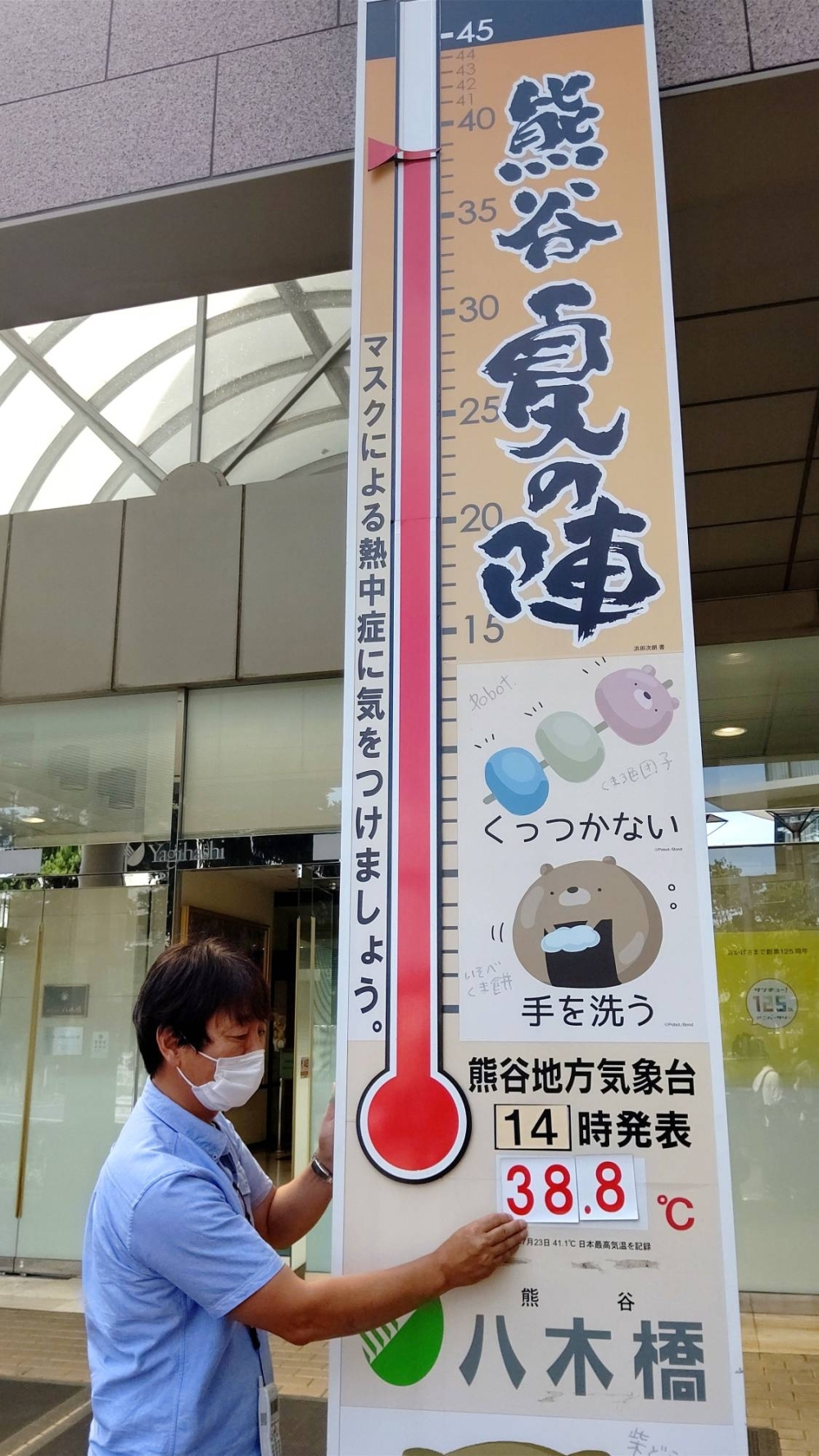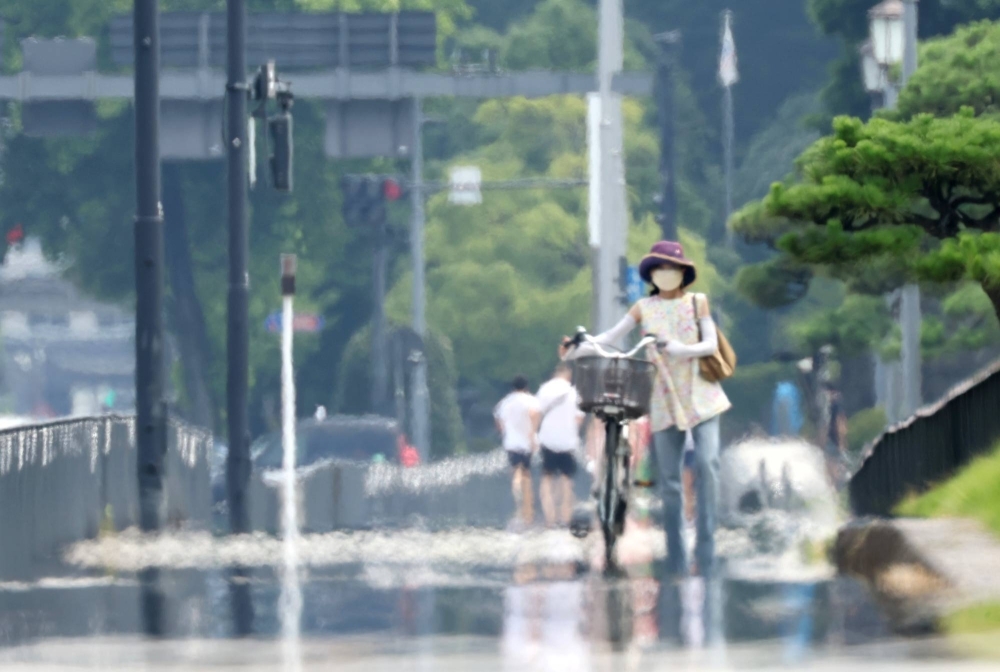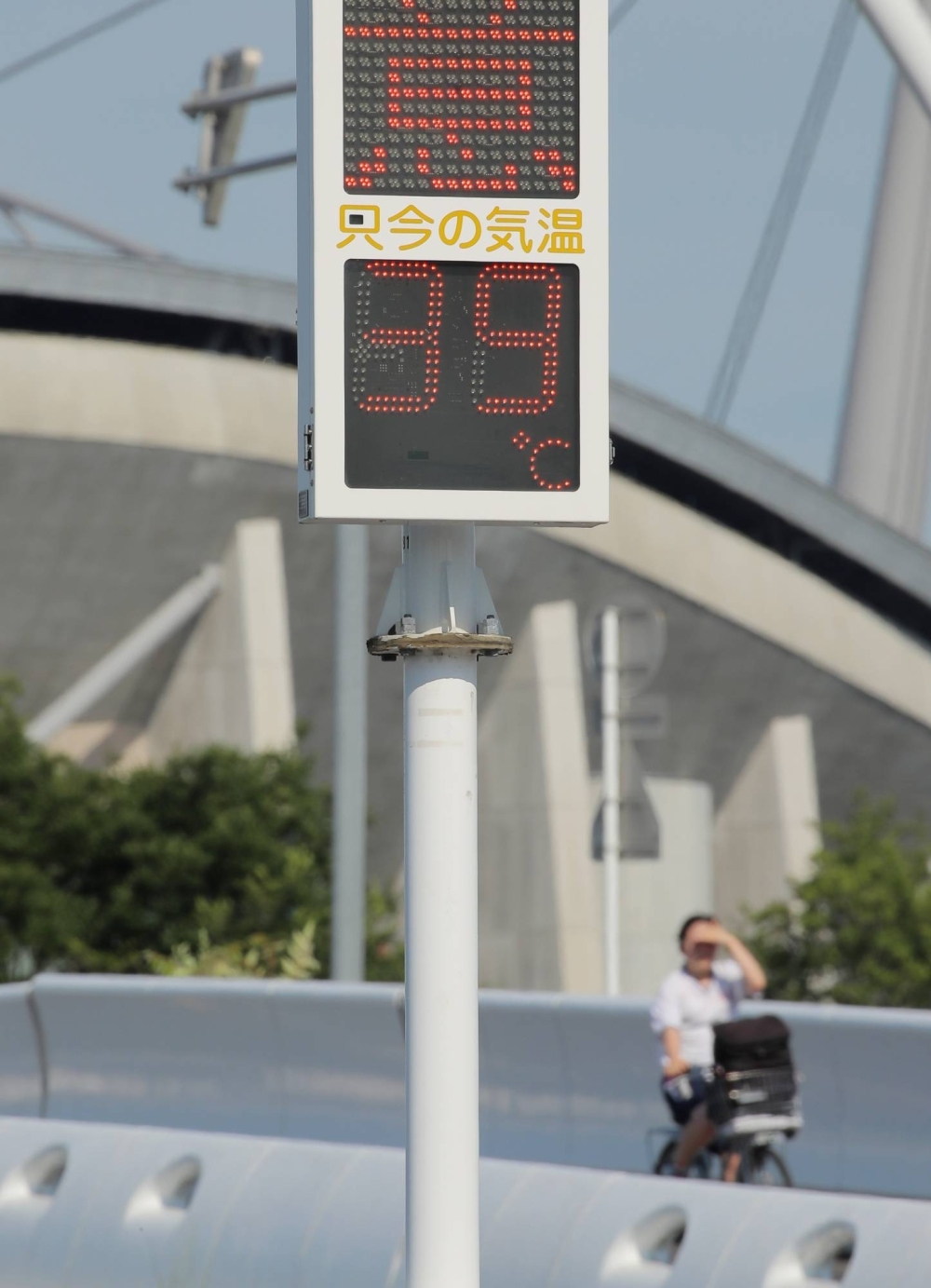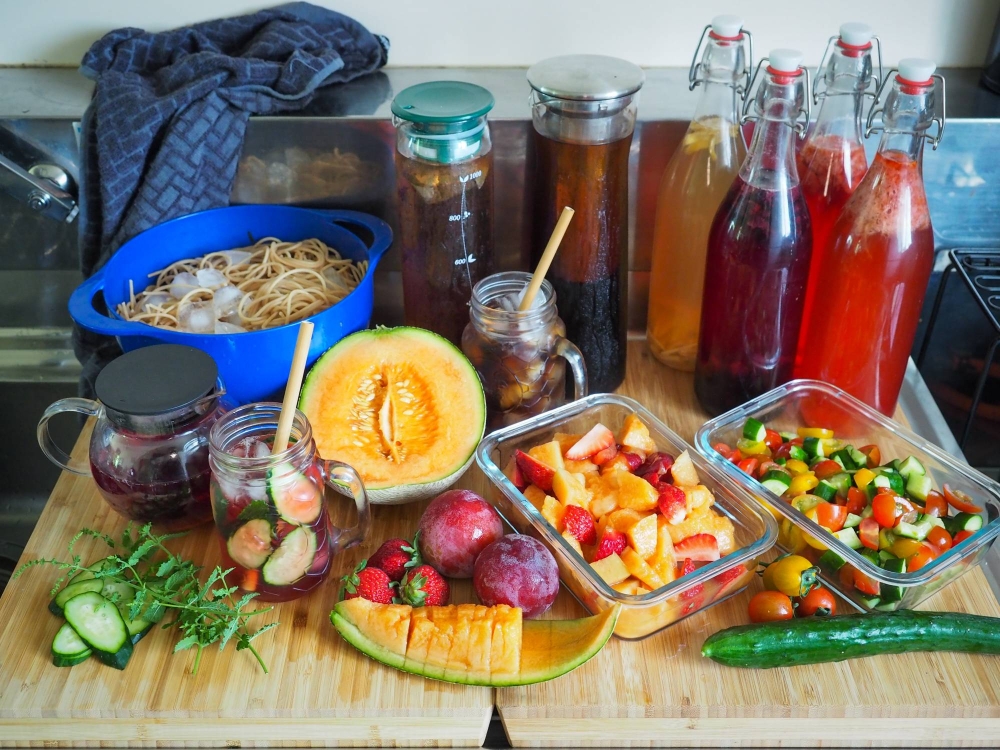If you’re not already thinking about how to keep your cool in the sultry sauna we call summer in Japan, you should be.
With the caveat that I am not a weatherman, I feel confident predicting that this year will be no more comfortable than last. Added to that is the fact that summer now seems longer, with mean daily temperatures throughout the country topping 30 degrees Celsius right through September, according to data from the actual experts at the Japan Meteorological Agency.
While the country as a whole is hotter, the Japanese archipelago is hugely diverse from the seaside to the alps and mountainous ranges that run its length. Getting to the coast for a sea breeze or into a national park for a therapeutic dose of shinrin-yoku (forest bathing) are both good options for beating the heat. Japan is also blessed with water, whether it be the sea, rivers or lakes — even if you can’t leave the city, when was the last time you visited your local pool?
Regardless of your location, the one thing everyone can control when the mercury rises is their diet. Most people know that drinking plenty of water is key to making Japan’s interminable summers somewhat more bearable, but the other side of that same coin is choosing the right foods to both keep yourself hydrated and fuel your body the right way when long days full of intense sunlight and ultraviolet rays (not to mention the dreaded humidity) threaten to drain your body of its precious resources.

Japan’s summers are getting hotter without any sign of cooling any time soon.
| JIJI
Here are a few tips for how you can tweak your diet to make Japan’s ever-warming summers just a bit more tolerable.
Don’ts
Don’t rush for canned coffee or bottled tea first thing in the morning.
With its innumerable convenience stores and vending machines, Japan is a country underpinned by its quick and easy access to caffeine.
Now that summer has arrived, though, try to take it easy on the morning energy rush. Caffeine is a nice pick-me-up, but it’s also a diuretic that causes you to expel more liquid than you take in. Yes, the caffeine itself will make you feel more awake, but that energy is being borrowed from the future, and when it leaves your system, there is an unavoidable crash. Compounded by liquid loss, too much caffeine too early can leave you even more fatigued as the day’s heat chips away at your stamina.
Don’t just live on convenience store meals and processed foods.
This is not me saying that these foodstuffs don’t have their place, but consider what they lack when temperatures are high. Over and above many nutrients being lost in processing, in large part what makes products shelf-stable is the removal of water. Microbes like mold need water to thrive, so companies remove it. When you do partake, balance these bites out with (you guessed it!) extra water.
“When it comes to hydration through nutrition,” says Dan Martin, a Tokyo-based chef and founder of Sankaku Nutrition, “it’s very simple, really.”

Japan’s convenience stores are a dime a dozen, but the foods and drinks on offer at them aren’t always the best choices when the mercury rises.
| JIJI
Don’t be fooled into thinking beer and icy highballs are the answer.
We’ve all seen the ads where, after guzzling down half a can of alcohol, people have never looked more refreshed. Likewise with caffeine, alcohol can cause dehydration, which in large part is likely what you felt if you have ever suffered through a hangover.
That’s not to say that a cold one after a long day in the sun can’t be a tremendous psychological salve, but following an adult beverage with an equal amount of water helps immensely.
Don’t eat too much.
Easier said than done, I know, especially during barbecue season. Try to do as the Okinawans do and eat until hara hachi-bu (literally, “stomach is 80% full”). Not only is this good advice since it takes your brain time to realize your body has had its fill, but it also leaves space for (sorry to repeat myself) water.
Digestion also means your metabolism kicks into action, which leads to a slight increase in your body’s internal temperature, so eating a sensible amount will have the added bonus of not heating you up too much.
Dos
Do eat foods with high water content.
Even if you’re not always mindful of how much water you’re drinking throughout the day, some of our daily needs can be met through smart seasonal food choices. Martin notes that many summer delicacies such as strawberries and cucumbers are the highest in water.
“I like watermelon, melon, tomatoes and spinach as they also contain high amounts of potassium, which is also vital to maintain electrolyte balance when sweating,” Martin says.

Japan’s extreme heat can drain the body of precious resources, so it pays to know exactly how to replenish and reinforce yourself against heatwaves.
| JIJI
In moderation, Martin also suggests adding small amounts of salt to your diet, especially if you tend to sweat a lot. Look for salted tsukemono (pickled vegetables) and umeboshi (pickled dried plums) at your neighborhood supermarket for these healthy sodium-packed foods.
Do prepare fruits and vegetables ahead of time.
A good way to hydrate and eat at the same time is through salads and smoothies that can be fully or partly prepared in advance, especially those that make use of natsubate (summer heat fatigue) curatives like the lightly alcoholic amazake. Martin makes a big fruit salad every week that “typically includes some type of melon, kiwi and either strawberry or mango, and then whatever else is available.”
“Also, each week I make a big cucumber salad for my clients, which they seem to enjoy,” he says.
When you do cook, cook in bulk.
Cooking during summer comes with the obvious side effect of heating your house. When cooking, especially with starches like rice, pasta, potatoes, couscous, or even Japanese noodles, cook more than you need for one meal.
Aside from consolidating the time you need to stand next to a hot stovetop, cooling and storing these foods can have multiple benefits. For the above list, you create resistant starches that give you longer lasting energy. Also, just about all of your favorite dishes can be reimagined as chilled versions, says Osaka-based Mexican chef Willy Monroy.
“I always eat soba in the summer — the cold version,” Monroy says. “I love it.”

During periods of extreme heat, cooking most of your weekly meals at once can cut down on the time you need to stand next to a hot stove.
| JIJI
Extend this food prep philosophy to your beverages as well. Making your own cold brew mizudashi coffee or mugicha wheat tea are great and simple options. Of course, drink water with your caffeine to balance out the side effects, but for non-caffeinated drinks, Monroy suggests a refreshing mix of commonly available hibiscus tea and cucumber.
“You make the Jamaica hibiscus tea, then cucumber water, then combine 50/50, add a bit of brown sugar — delicious,” he says.
Do eat out.
Most restaurants will have seasonal menus that will suit this sweltering time of year. Despite everything written here, sometimes you just have to treat yourself to someone else’s cooking, air conditioning and a cold beverage.
“For the summer, I will do a lot of fresh and cold dishes,” Monroy says. “Oysters, ceviches, shrimp cocktails.”
Just getting out of the house can be just the change you need to kick the natsubate blues — as long as you don’t overindulge in too much of the foods that will make the trip back home any sweatier than it needs to be.

